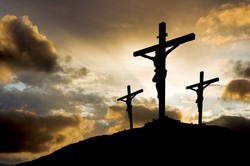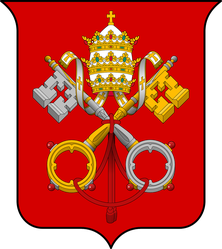The mystic and evolutionary philosopher Teilhard de Chardin articulated a pair of visions for the future. Writing in The Phenomenon of Man he spoke of a Utopian future when humanity would have achieved megasynthesis, a unity of all humans in community with each other and the divine, in full respect of each other's individuality and humanity, a great harmony of love, the final realization of the Christian vision expressed in terms of Teilhard's mysticism. But the dystopian vision that opposed it was the unity of the anthill, when humans were organized into a collectivity that denied their individuality and reduced them to mere functionaries of a machine or system that had swallowed them up. In the anthill there is no freedom for there are no individuals to exercise it; and there is no love, for there are no individual persons to love, in fact love would be frowned on as it is a relationship between individuals that affirms the individuality of the other.
These are extreme visions, but there are dehumanizing forces operating in our world, generally the extreme forms of economic systems. Look at capitalism, while free enterprise makes a positive contribution to society, the harsher forms of this economic system treat workers as less than human, disposable commodities to be treated with no concern for their well being. They are paid as little as the company can get away with and the companies pay little or no attention to worker health and safety. Exponents of this system are apt to argue that business works better when workers have fewer rights, so they see the humanity of the work force as a burden to be ignored as much as is possible.
The rush for artificial intelligence is linked with the capitalist desire to do without workers, for robots do not need to be paid and they have no rights. In a system that sees workers as inconvenient necessities to be tolerated while they are being used, a robot is a desirable choice. But while we are told that we need not fear artificial intelligence, the ones who tell us this are those who are set to reap the biggest profits from it. Do we trust them? Should we? Would you trust the words of a capitalist with much to gain?
Yet there are forms of socialism that are no better. I have argued with socialists who decry liberty [or other people's liberty, never their own, which is sacrosanct] and individuality.Socialism in its communist form produced totalitarian tyrannies in which individual freedom was effectively abolished. Karl Marx detested the libertarian works of John Stuart Mill. This sort of situation is still occurring in some states, such as North Korea, where humans are treated with contempt. Most forms of socialism elevate the role of the state and therefore regard at least some individual liberty as an impediment to the state's effective functioning.
There are other forces. ISIL,Islamic state, has produced a monstrous society in which non-Islamic women can be treated as slaves and gay people thrown from the tops of high buildings. Slavery and the death penalty, both of them deny the humanity of the subject, devaluing the life of some and the personal liberty and inviolability of the dignity of others. Naziism regarded non-Aryan races as subhuman, and while Hitler slaughtered Jews and Gypsies, his vision for the Slavs and black races was perpetual slavery. A dehumanising condition, and the Nazis still have their supporters in our time.
But all these kinds of dehumanizing tomfoolery overlook one principle. If you deny the humanity of another, you deny your own, and you become less of a person because of it. The Islamic State fighter taking a slave girl against her will denies her humanity, but dehumanizes himself in the process. In denying the humanity of Jews Hitler denied the humanity of the Nazis. Thus, only by fully affirming the humanity of everyone in the world can we fully affirm our own.









 Pilgrimage. A review25 days ago
Pilgrimage. A review25 days ago
 Leo the Fourteenthon 05/09/2025
Leo the Fourteenthon 05/09/2025
 The Melsonby Hoardon 03/25/2025
The Melsonby Hoardon 03/25/2025




Comments
She wasva very conservative disposition.
Thank you for your comment below in answer to my previous observation and question.
The first paragraph to the second subheading, A catholic vision, describes Mother Teresa as having "disbelieved in women priests."
Did Mother Teresa give a reason for her disbelief?
I don't know. Vatican staffbare not devoted to technology. They use it when necessary.
Thank you for your comment below in answer to my previous observation and question.
Artificial intelligence now appears at the top of search results through the google-chrome browser. It appears in some telephone interactions, such as for grocery-store concerns.
Do Vatican staff members keep current of technology such as artificial intelligence and robots even as they perhaps expect not to employ it?
I doubt thatbthe Vatican needs ai
Thank you for your comment below, on Feb 4, 2016, in answer to my previous observation and question.
The third paragraph in the first subheading, A vision for humanity, addresses artificial intelligence and robots.
Does Vatican City use artificial intelligence? Might there be plans for robots?
Thanks, I agree.
frankbeswick, Thank you! I've always preferred the translation of Albert Camus's famous observation as "People die, and they aren't happy" as opposed to the gloomier "People die, and they aren't lucky." One is the fact that we all must admit and the second is the problem that we need to acknowledge. Happiness for the few need not entail the unhappiness of the many, and vice versa. Your article outlines the path to that happiness.
The question,Who created God, assumes an infinite series of beings of equal contingent status in a temporal series of realities. Aquinas believed that this temporal series of contingent causes cannot exist, so there must be a non-dependent self-existent cause outside the temporal series that grounds the process. However, Aquinas thought that also the dependence of the cosmos on God was not only dependent upon an initial cause but upon on ontological grounding in God as the non-temporal ground of all being, the condition of the cosmos' existence. Hawking did not adequately address these philosophical points. He approached through the concept of imaginary time,which can postulate a cosmos without God.But the question is why does he think that postulating imaginary time is the right approach.
Coming back to humanity, it is easy to say that we should treat people as equals. Gaps in accepting humanitarian ideology can arise from several reasons. Money, social status, intellectualism, beauty, religion, country and many others.
While we all know that some traits should not come in between distinguishing humans, some traits need to be differentiated. Students who are genius and those who are mentally challenged should be treated different. Also robots are not supposed to demean humans, they need to be used where humans cannot perform such as highly radioactive and hazard prone locations.